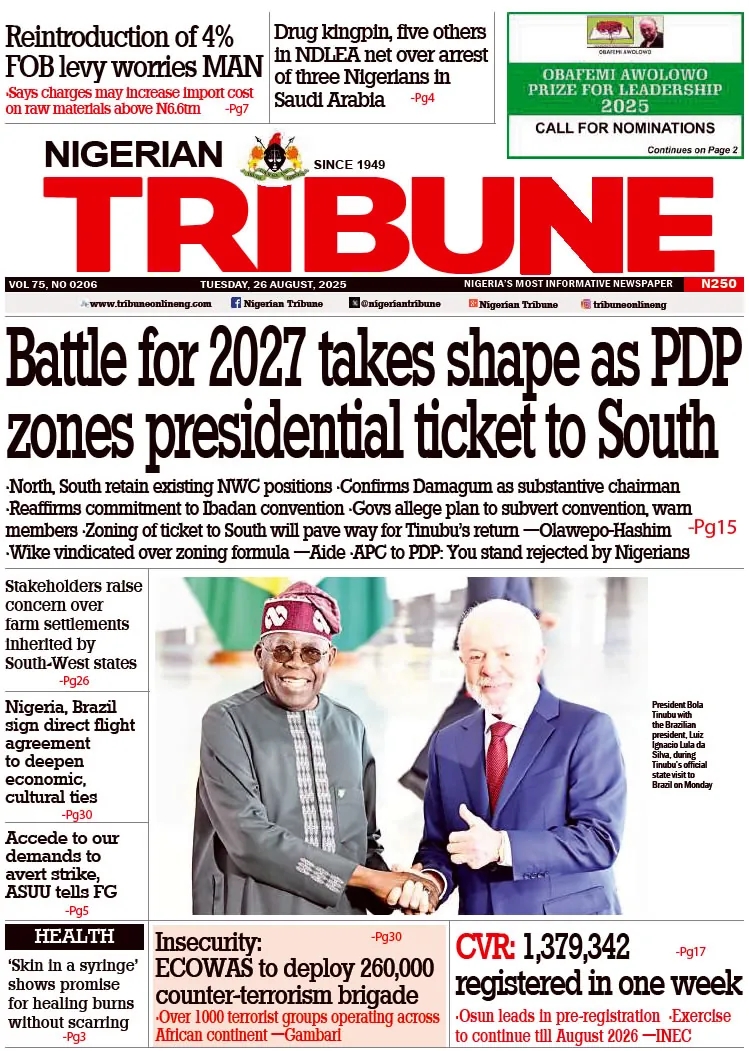The Federal Government, in collaboration with the Ministry of Education, the Universal Basic Education Commission, the Nigeria Governors’ Forum, and UNICEF, is taking decisive measures against the learning crisis in Nigeria.
This decision was made at a two-day National Conference on the Learning Crisis.
According to a statement signed by Mr Samuel Kaalu, the UNICEF Communication Specialist, and made available to the Online Tribune, the conference provided a platform for participants to analyze the magnitude of the educational challenge.
Various contributing factors were highlighted, including the lack of quality educational investments, the urgent need for improved teacher training, and access to quality textbooks in indigenous languages.
Mr. Samuel Kaalu explained that the conference also emphasized successful educational models such as the Reading and Numeracy Activity (RANA) and TaRL (Teaching at the Right Level). The former has made remarkable progress in improving reading skills for students in Grades 1-3 in both English and Hausa languages, catering to formal and Integrated Quranic Schools.
The statement further noted that strong voices from federal and state officials, international donors, development partners, and the private sector led to the creation of a ‘Framework of Action.’
This proposed framework underscores the importance of teacher training, advanced teaching tools, tech-integrated learning, and performance assessments.
During the meeting, government stakeholders, led by the Minister of State for Education, Dr Tanko Yusuf Sununu, and the Chairman of the Nigeria Governors’ Forum, Dr AbdulRazaq AbdulRahman, called for strong political leadership, commitment, and collective action to address the learning crisis.
In her goodwill message, Jana Wooden, the Education Director of the United States Agency for International Development (USAID), stated, “USAID is committed to supporting inclusive foundational learning programs through collaboration with the Ministry of Education, civil society organisations, implementing partners, and other donors to meet the needs of children and youth in Nigeria and globally.”
Ms Cristian Munduate, UNICEF Representative in Nigeria, strongly emphasized that “Nigeria must prioritize the learning crisis in its developmental agenda. A united effort, blending political leadership, technical expertise, and local community involvement, is pivotal.”
She further added, “The time to zero in on and rededicate to learning is now, especially as the new administration outlines its focus for the forthcoming five years.”
READ ALSO FROM NIGERIAN TRIBUNE
WATCH TOP VIDEOS FROM NIGERIAN TRIBUNE TV
- Let’s Talk About SELF-AWARENESS
- Is Your Confidence Mistaken for Pride? Let’s talk about it
- Is Etiquette About Perfection…Or Just Not Being Rude?
- Top Psychologist Reveal 3 Signs You’re Struggling With Imposter Syndrome
- Do You Pick Up Work-Related Calls at Midnight or Never? Let’s Talk About Boundaries







